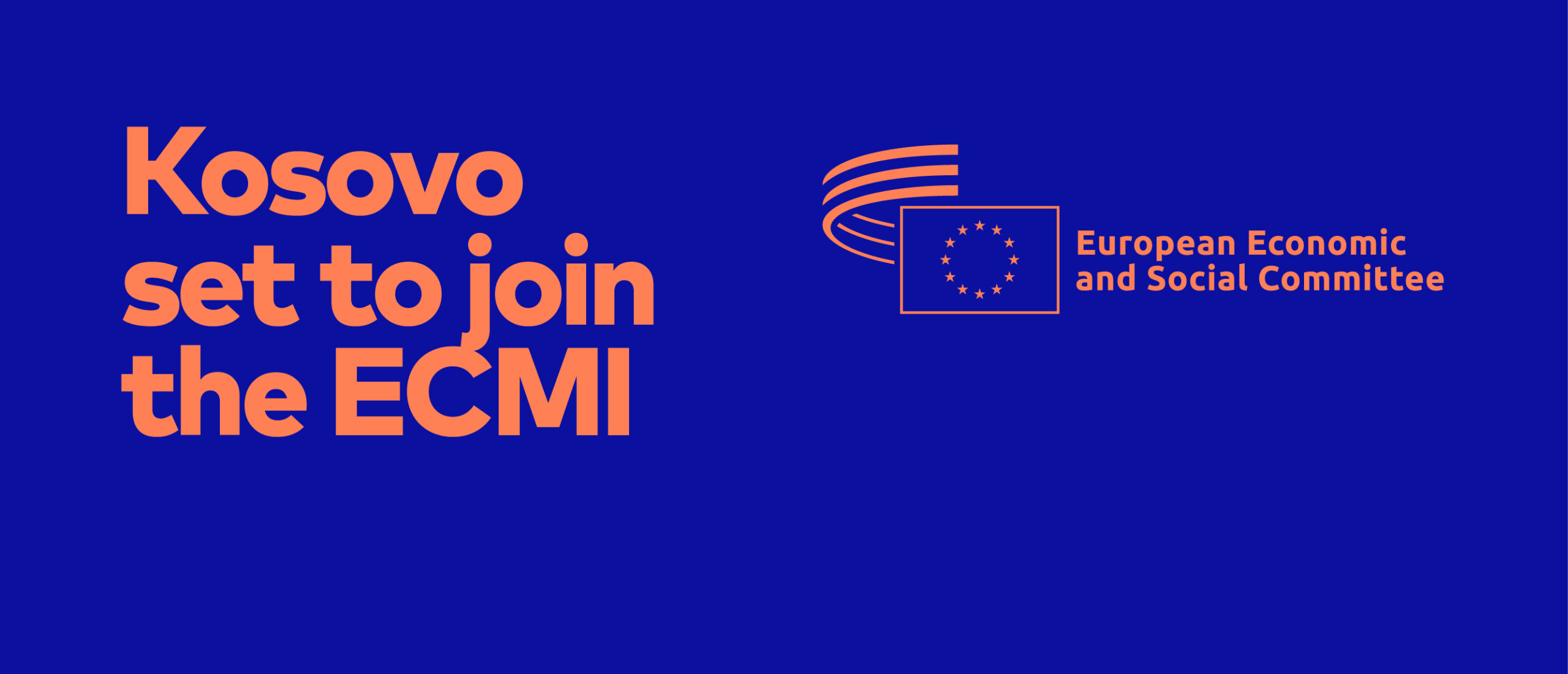Kosovo is set to join the Enlargement Candidate Members Initiative (ECMI) of the European Economic and Social Committee (EESC), an initiative formalized in 2023, which had initially excluded Kosovo due to its non-candidate status.
Kosovo’s inclusion in the ECMI was made possible thanks to the continuous engagement of the Kosovar Civil Society Foundation (KCSF) through the Balkan Civil Society Development Network (BCSDN), in close cooperation with regional partners and with the support of the EESC President, Mr. Oliver Röpke.
Through this network, KCSF coordinated a regional advocacy campaign supported by 104 civil society organizations from across the Balkans, calling for Kosovo’s inclusion in this important European initiative.
KCSF views this as the result of sustained efforts by civil society in Kosovo and across the region, demonstrating that the voice of civil society, solidarity, and regional cooperation can bring tangible change.
Kosovo’s civil society will now have the opportunity to contribute directly to debates and policies that shape Europe’s future, alongside counterparts from the 27 EU Member States.
What are the EESC and ECMI?
The European Economic and Social Committee (EESC) is an EU advisory body established in 1957 that brings the voices of civil society representatives and social partners into European policymaking. Through its opinions, the Committee advises EU decision-makers and ensures a structured dialogue with European citizens. Based in Brussels, the EESC comprises 329 members representing the 27 EU Member States.
In September 2023, the EESC launched the Enlargement Candidate Members Initiative (ECMI) to include representatives of civil society organizations and social partners from EU candidate countries in its consultative work. Through ECMI, the EESC seeks to prepare and integrate candidate countries into EU structures even before accession, by involving them in formal EU bodies, enabling their participation in discussions that influence EU policies, and thus initiating the integration of civil society well before the country’s full membership.
The importance of Kosovo’s inclusion in ECMI
Kosovo was initially left out of ECMI because it did not meet the formal criterion of candidate status. In response, in April 2024 KCSF initiated action within the EESC, arguing that the absence of candidate status should not prevent Kosovo’s civil society from participating in this body, particularly as Kosovo was the only aspiring country excluded from the initiative.
Considering the Committee’s decision as both incorrect and inconsistent with the EU’s own principles and values, KCSF, together with representatives of civil society and trade unions from Kosovo, met with EESC leadership on 24 May 2024 to raise concerns over Kosovo’s exclusion and to call for this decision to be corrected. The same request was reiterated during the High-Level Civil Society Conference held by the EESC in Brussels on 24 October 2024.
In November 2024, BCSDN, of which KCSF is a member, submitted a letter to the EESC signed by more than 100 civil society organizations from across the Balkans, urging Kosovo’s inclusion in ECMI.
KCSF views Kosovo’s participation in this initiative essential for strengthening regional cooperation and advancing our shared path toward European integration.
This development marks an important step toward equality and the integration of Kosovo into European processes, opening new opportunities for cooperation, representation, and the active contribution of Kosovo’s civil society to the EU agenda.
KCSF expresses its deep gratitude to all partners and organizations that supported this initiative. This marks a small but meaningful step toward a more connected Kosovo, one closer to the Europe of shared values, solidarity, and cooperation.
As part of its long-standing commitment to strengthening civil society and advancing Kosovo’s EU path, KCSF reaffirms its dedication to pursuing the country’s EU agenda with professionalism, cooperation, and a clear vision, making citizen participation and democracy an everyday part of public life.
